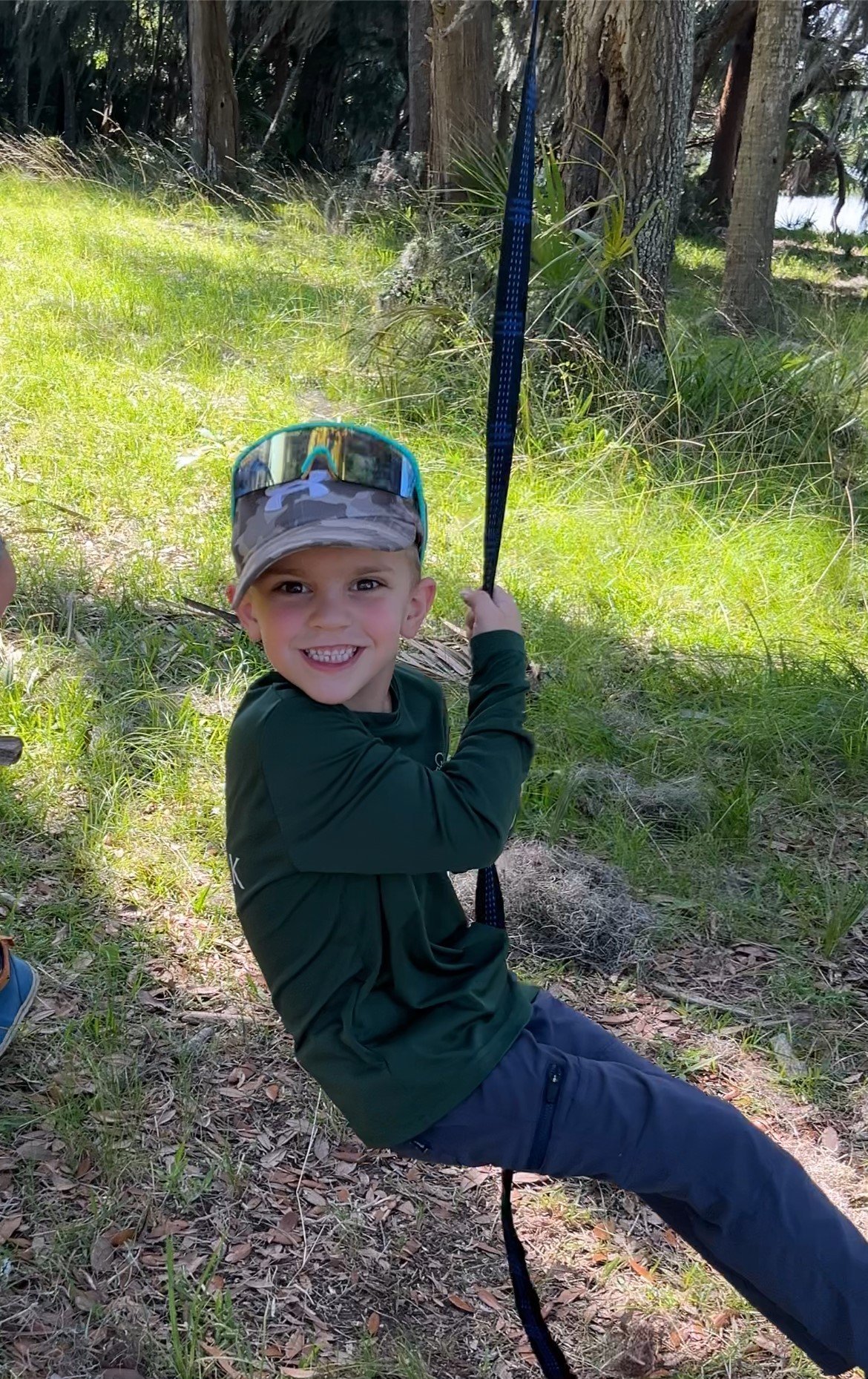What Makes Sense?
Angel Oak Nature Academy was created to be an educational program that makes sense for children. Most kids do not thrive in being confined indoors with twenty other kids for 6-7 hours a day. Actually, most adults don’t either. Kids need to be free to move, talk, and giggle! After almost two decades of working within the traditional school system, founder Christy Richard decided it was time to teach outside the box. She combined her love of working with children, understanding of their developmental needs, and desire to help kids love learning again to create a 100% outdoor learning environment- a class with no walls.
Why Nature School?
The forest (nature) school concept is not a new one. In Germany over 150 years ago, Friedrich Frobel coined the word “kindergarten”. This translates to “child’s garden” in English. Frobel started the world’s first outdoor kindergartens (“Waldkindergartens” or “forest kindergartens”). These classes met entirely outside, year-round. This type of learning platform for children under the age of 7 proved very successful over time. Because measurable positive academic results continue, the German government has fully embraced this type of learning style. The United States is gradually understanding the value forest schools can bring to a child’s cognitive, physical, and social development.
Research-backed benefits of a nature-based learning environment:
Strengthened Social Skills
Superior Problem-Solving and Critical Thinking Skills
Higher Confidence
Stronger Immune Systems
Elevated Academic Performance in Higher Grade Levels
Longer Attention Spans
Stronger Leadership Skills
Better Mental Health
Increased Physical Strength
Understanding of Stewardship of the Environment

Risky Play
We believe that exposing children to moderate risk and allowing them to develop an awareness of their surroundings is healthy for their physical and cognitive development. For this reason, we maintain a very low student to teacher ratio.
-

Christy Richard
FOUNDER/LEAD TEACHER
-

Lorena Thomas
TEACHER ASSISTANT
-

Carrie Wilder
TEACHER ASSISTANT
-

Elena Richard
TEACHER ASSISTANT
Join Our Team.
We’re looking for trailblazers, outside-of-the-box thinkers, patient, and kind individuals to work with our incredible kids outside.


